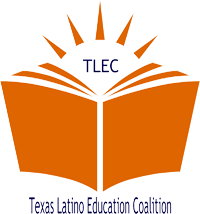Texas Equity Gaps Would Have Increased Under Aycock’s School Funding Plan Legislature Now Has Opportunity to Positively Impact Equity and Adequacy

(Austin, Texas • May 18, 2015) Rep. Aycock chose to withdraw his school finance plan (CSHB 1759) last week rather than engage in the hours of debate that were expected as a result of various controversial features contained in his legislation. While some school districts have bemoaned the lower chamber’s failure to adopt the House school funding plan, the Texas Latino Education Coalition concluded that the plan contained too many flaws that contributed to its failure to make it off the House floor. However, the Texas Legislature still has the opportunity to make things right through their appropriation power.
A cross-section of legal and policy experts on the Texas school funding system report that the legislation failed to effectively address the recent court ruling that our school finance system is “constitutionally inadequate, unsuitable and financially inefficient.” In the trial, Dr. Albert Cortez, IDRA director of policy, presented evidence and testified: “Low-income and minority students in Texas are more likely to be in under-resourced schools with limited access to quality teaching and curriculum. In Texas, the quality of schooling still seems to be markedly affected by the neighborhood in which you happen to reside.” The proposed House plan did little to address those concerns.
While the House plan purported to allocate an additional $3 billion in state funding, $2.2 billion was already in appropriations, and Aycock’s bill would have added an additional $800 million. Perhaps worse, the spending of the $3 billion would have been in too many wrong places. IDRA’s analyses revealed that if adopted, the proposal would have actually increased funding inequity between students in the poorest districts and those in the wealthiest districts. It also failed to provide adequate funding and opportunities for economically disadvantaged students and English language learners (ELLs), and failed to provide sufficient revenue to ease the tax burdens of many property-poor school districts.
IDRA research found that under the current funding system, there is a $1,098 gap in per student spending between the 100 poorest and 100 wealthiest schools – a gap of $27,450 per classroom. Under the House plan, the funding gap would grow even larger because the state’s wealthiest districts would have received far more funding per student than the poorest districts. For example, property-wealthy Alamo Heights ISD would have received $475 more per student and property-poor Edgewood ISD would have received only $170 more per student. This means some districts would continue to have significantly more money to recruit and retain qualified teachers, have lower student-teacher ratios, offer advanced placement and dual credit courses, provide counseling and academic supports to focus on college readiness, and cover the cost of arts and music programs that can engage all students.
Unfortunately, neither the recently withdrawn House funding plan nor the school funding plan folded into the Texas Senate appropriations bill, address the inequality, inadequacy and inefficiency emphasized in the recent court ruling. An alternative proposal by Representatives Walle, Gonzalez and Bernal would have provided a far more equitable and adequate education than ever before for millions of Texas children. TLEC organizations MALDEF and IDRA, along with the Center for Public Policy Priorities, helped provide technical support and expertise in the drafting of that proposal, which would increase the basic allotment to amounts that more closely reflect the actual funding levels needed to provide a quality education in Texas and increase funding weights for low-income and ELL students (for the first time in 30 years).
Texas needs fair funding for all schools now. Through their appropriations power, both the House and the Senate have an opportunity to invest in public education in the right places. TLEC member organizations urge the House and Senate not to push by the wayside the educational needs of Texas’ most vulnerable students and to, instead, help those students by increasing both the basic allotment and the funding weights for ELL and low-income students in appropriations. TLEC stands ready to work with state leaders in crafting a new school funding plan that ensures that all students – no matter their zip code – have equitable educational opportunities to a high quality education.
The Texas Latino Education Coalition (TLEC) is a collaborative of organizations and individuals who advocate for the rights of Latino students at the local, state and national levels. The coalition was organized to focus specifically on critical educational issues in Texas and to improve the state of education for Latino students in public schools.
TLEC organizations signed on to statement:
Dr. Hector P. Garcia G.I. Forum
Intercultural Development Research Association
La Fe Policy Research and Education Center
Mexican American Legal Defense and Educational Fund (MALDEF)
Mexican American School Board Members Association (MASBA)
¡Presente!
San Antonio Hispanic Chamber of Commerce
Texas Association for Chicanos in Higher Education (TACHE)
Texas Center for Education Policy
Texas Hispanics Organized for Political Education (HOPE)



